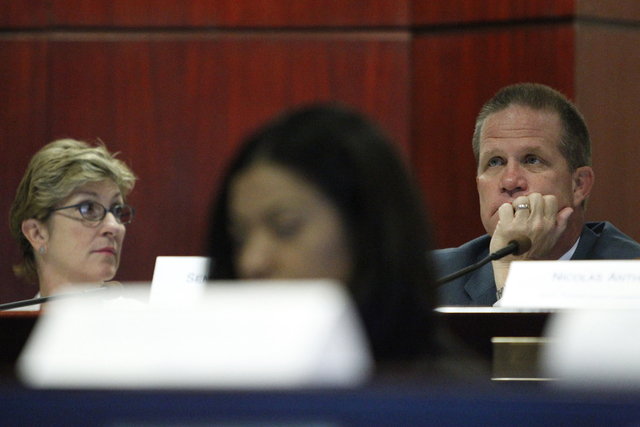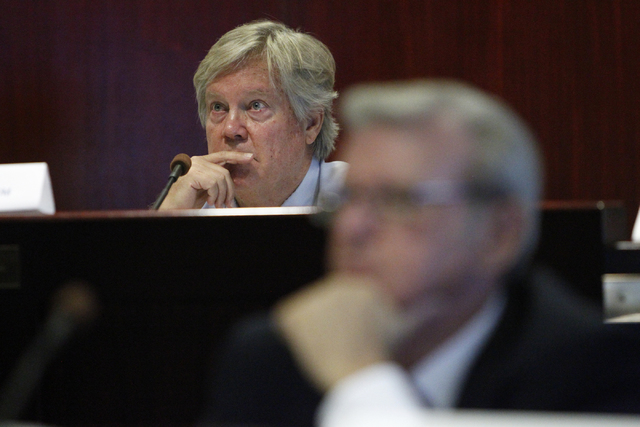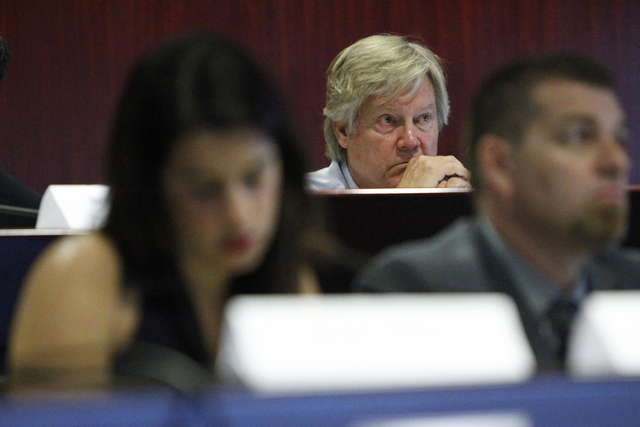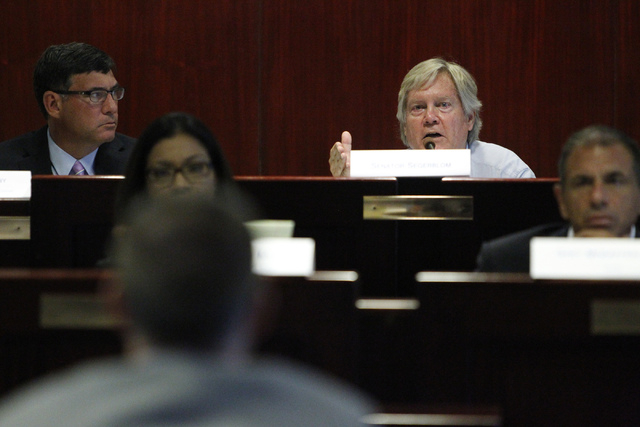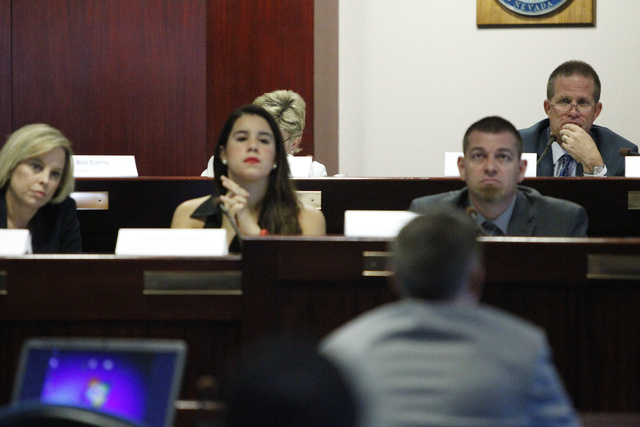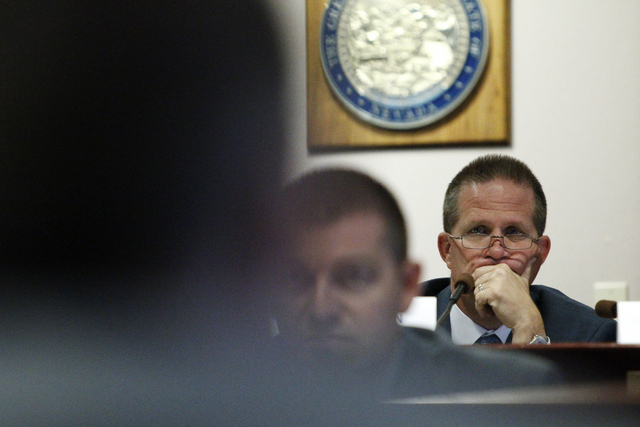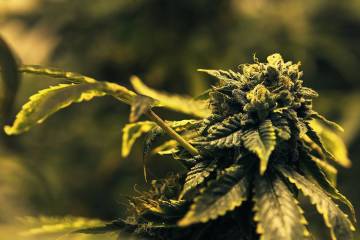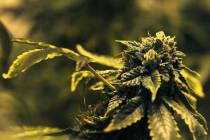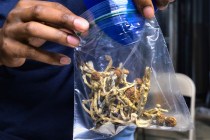Nevadans want pot DUI tests to be performance based
Medical marijuana users might need more than a bad blood test to end up behind bars in Nevada.
Critics of the state’s driving under the influence of marijuana laws want the Legislature to move the burden of proof from a detection test to a performance test model.
A state legislative panel recommended by a 9-to-3 vote Thursday that a bill draft request be modeled after California’s law and submitted for the 2015 session. In that state, police must first determine that you might be impaired in the field, then request a blood test if they feel that you are. If marijuana is found in a person’s system, the prosecution must prove that the person was too impaired to drive safely.
Advisory Commission of the Administration of Justice’s Subcommittee on the Medical Use of Marijuana chairman and state Sen. Tick Segerblom, D-Las Vegas, said if a bill draft is not submitted by the committee, he will probably propose it himself. Segerblom authored the 2013 law establishing medical marijuana dispensaries.
“If it’s good enough for 40 million people, it is probably good enough for us,” Segerblom said of the California model.
Paul Armentano, deputy director of the National Organization of the Reform of Marijuana Laws, told the panel there is no scientific correlation between the amount of the active ingredients of marijuana in a person’s system and impairment.
Patients can become tolerant to the effects of THC over time, compared to a new user, he said.
“Cannabinoids’ absorption patterns and effects on performance vary widely from person to person, raising concerns that imposed limits are unlikely to be consistently applicable to individual subjects,” Armentano said.
If adopted by the 2015 Legislature and signed by the governor, DUI marijuana would no longer be based solely on how much THC is in someone’s system.
THC, or tetrahydrocannabinol, is the chemical linked to most of marijuana’s psychological impacts. Nevada is one of six states that tries to measure under the influence of marijuana scientifically, something critics and some state lawmakers say can’t be done. Even the federal government has expressed doubts.
According to a report published by the U.S. Department of Transportation and cited by Armentano, “with the exception of alcohol, toxicology cannot produce ‘per se’ proof of drug impairment.”
There is a difference between testing for driving under the influence of alcohol, which has a well-established 0.08 percent blood-alcohol threshold for behavioral impairment, and driving under the influence of marijuana, whose threshold is still widely debated. Nevada is one of six states that have marijuana influence laws based only on detection. Eleven states have zero tolerance laws and 33 states have effect-based laws leaving the burden on the prosecution to prove influence.
The move to change the law did get some pushback from representatives of law enforcement and prosecutors on the panel.
Sandra Douglass Morgan, city attorney for North Las Vegas, said there is not enough information to change state law.
“I wouldn’t favor any changes until there is more definitive information as to why (state law) should be changed,” Douglass Morgan said. “I don’t think that exists right now.”
The 20-member panel that gathered to discuss issues facing the new industry consisted of four state lawmakers and 16 appointees representing local government, law enforcement and the legal community.
Thursday was the second and final meeting of the panel, which also discussed the DUI marijuana issue in July.
Contact Arnold M. Knightly at aknightly@reviewjournal.com or 702-477-3882. Find him on Twitter: @KnightlyGrind.




